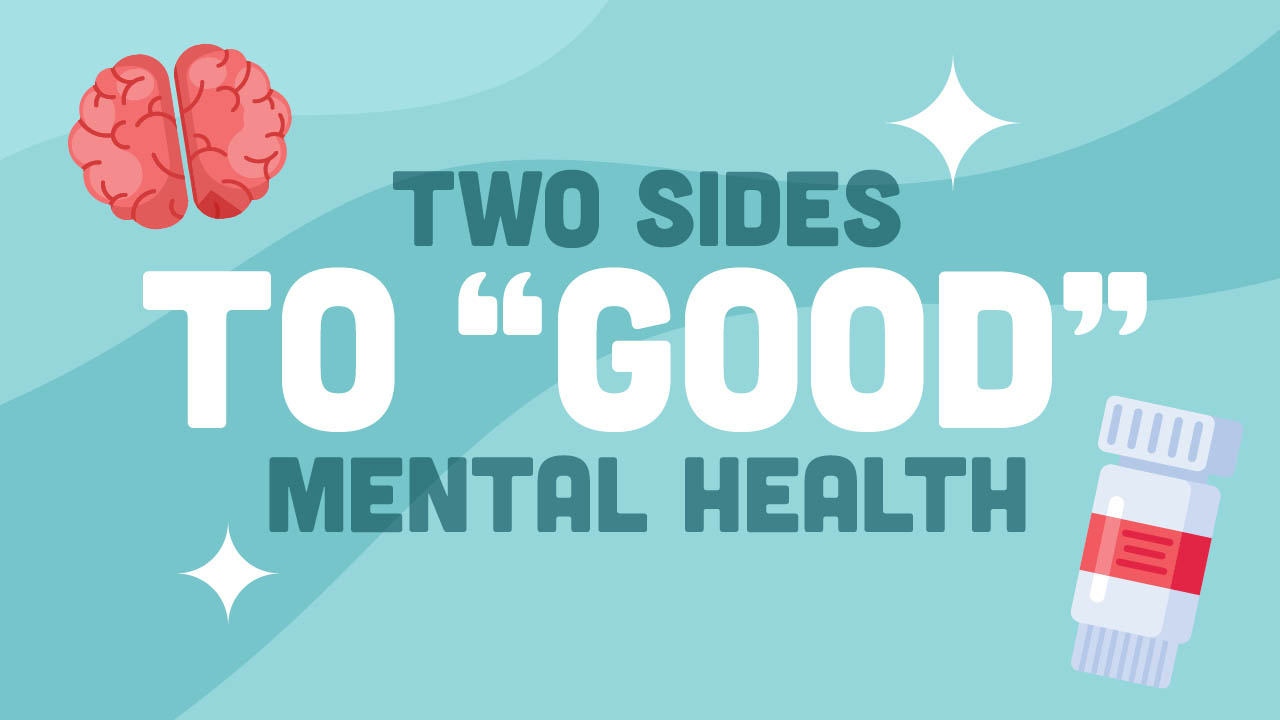Two sides to "good" mental health

It can be so easy for individuals to seek “good” mental health. However, this can have different meanings depending on if a person struggles with a diagnosis or if a person struggles without a diagnosis and experiences the occasional dark day. In both situations, there are strategies that individuals can use to increase a healthy mindset. Be that as it may, these strategies can sometimes look different to suit the needs of the individual. This feature is intended to remind and inform readers of the different strategies one can use to build a healthier mindset and highlight that what might work for one person will not always work for another.
Registered Psychotherapist and Social Worker, Shirley Porter said good mental health can be defined as functioning, and feeling good about functioning.
“It doesn’t mean we won’t have bad days or sad days, but it means that we are getting through it and we’re not doing things that are hurting ourselves or others intentionally or unintentionally because we aren’t coping well,” Porter said.
Porter discussed that an individual with a diagnosis can use strategies that a person without a diagnosis might also use. What might differ is that an individual with a diagnosis is more likely to have medical support and therapy to help maintain a healthy mindset.
“When people have a diagnosis, what we are always striving for is to manage it,” she said.
It is important to note, that if mind strategies aren’t enough to cope with mental health challenges, seeking medical support or counselling services can be the next step to achieving “good” mental health.
Porter also shared some of the strategies she usually recommends to students to maintain a healthy mindset. The first strategy that she mentioned was to directly address the problem, if that is possible. She expressed that it is important to speak with people who will be supportive or bring clarity to the situation and not to confide in someone who will use your situation against you and create an abusive environment. The second strategy she mentioned is to maintain mindfulness. Porter said that when the mind wanders, it is important to bring ourselves back to the present moment.
“If I see someone in my office and they are spiraling, I’m going to ask them to take a breath, as focusing on our breathing can get us back in our bodies, and reset,” Porter said.
She indicated that using our senses such as sight, sound, taste, touch, and smell, can help bring the mind back into the present moment. A third strategy that relates to maintaining mindfulness is “to ask ourselves what is being asked of me in this moment?” Porter said that taking one step at a time can help the mind from becoming overwhelmed. Another strategy that Porter discussed is making a list or a “tool kit” for people to look back at when feeling overwhelmed and seeing what strategies have worked in the past to change their mindset.
Kathleen Cothran, a 23-year-old resident of the Caribbean, shared some of the coping strategies she uses to manage her generalized anxiety and depression as well as obsessive compulsive disorder (OCD).
“Being present, grounding myself in moments of uncertainty, and when I feel like I’m kind of spiraling into an anxious state, I try to ground myself and tell myself that everything is going to be okay. Yes, bad things do happen but I’m living in the now, and right now everything is okay,” Cothran said. “Just because I have an anxious thought, doesn’t mean it’s going to happen.”
Cothran expressed the importance of finding what makes you feel happy.
“It can be reading a book that you love or putting in work for eight hours and feeling accomplished after,” she said. Cothran acknowledged that for her, staying busy and being productive throughout the day are both keys to giving her a sense of accomplishment.
“What I want to share with someone who is facing similar problems is: speak out. You can’t do it alone, no one can handle it alone, and you need a support system, even if it isn’t family,” Cothran said.
She added that having someone to vent to, who you can be your most authentic self with, is also important.
“Seek help, seek support, and try to help yourself the best you can. Small gradual steps are a big thing; don’t overwhelm yourself, just take it day by day.”
She shared that finding strategies to make you feel better in anxious situations, doesn’t always need to be therapy.
“It could just be watching videos on how to ground yourself or meditation,” she said.
Cothran said that although family members and friends may think suggesting different strategies can help, it can also be extremely overwhelming to a person who is already struggling. She suggested that friends and family who want to be there for loved ones who are struggling with mental challenges, should remember to be an “open ear.”
“Family just needs to be patient and judgement free,” Cothran said.
Cothran believes there is still a stigma with men sharing that they are struggling with mental health. She said that men also have struggles and that it should be acknowledged more by society.
“Statements such as, ‘a man has to be strong, a man has to be okay.’ No, everyone struggles,” Cothran said.
For Cothran, it is important for people to be mindful of another person’s mental state, no matter the gender.
To conclude, it is the belief of both Porter and Cothran that seeking support in trying times is beneficial to a person who experiences dark days, whether diagnosed or not. Porter reminded students that there are people to reach out to for help. Counselling and Accessibility Services is located on Fanshawe’s main campus in room F2010 and has the resources to help students who are facing challenges.















